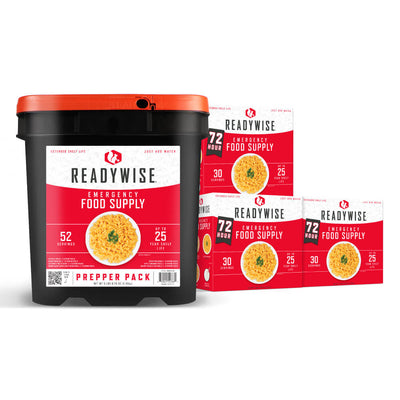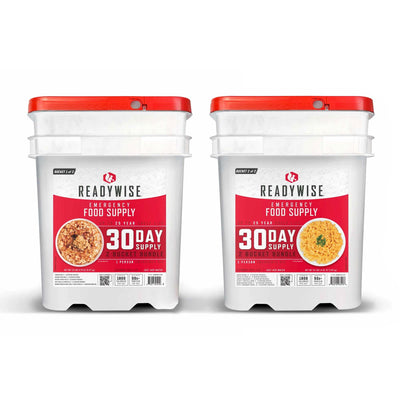How Long Can You Survive Without Water
Water is crucial to a human's survival. There's been multiple stories about a person stranded somewhere that somehow survived without water for over a week, but it's almost impossible. There's a lot of factors that go into how many days you can go without water.
Survival Time
Water makes up 60% of a person’s body weight. The maximum time an individual can go without water is about a week. This is an estimate based on observations of people at the end of their lives. This is when food and water is stopped being given to the person in a dying state. One week is a long estimate. The typical time would usually be about three to four days. Experts say you can go about 100 hours without drinking when it is an average temperature outside. If it's cooler, you can go a little longer. If exposed to hot sunlight, the time is shorter. There is no magical amount of days that states when dehydration cuts survival. It depends on the person and the temperature.
Water Sources
It's crucial for your body to get the water that it needs to sustain the body. You can get some of your water from food, but that H20 is your best source. Knowing the best way to store emergency water is key to ensuring you have access to clean drinking water in any scenario. It's important to drink an adequate amount of water at your home. Use a filter like a Berkey Water Filter to rid of any bacteria and chemicals that might be in the water. Some people say they just get tired of water. In this case, add natural flavors to your filtered water for a boost of taste. You can also drink juice and milk for hydration. Stay away from alcoholic beverages when you're feeling dehydrated as they cause the body to lose more liquid through urination.
Natural Loss Of Water
Food and water are essential to our survival. A person can live a lot longer without food than water. Why? This is because so much of our body is made of water. We lose that water rapidly each day. On a daily basis, humans lose about two to three litres of water through bowel movements, urine, normal breathing, sweat and home exercise. The amount of water you need a day depends on different factors. Things like your age, body fat, gender, health, and geographic location play into this. Women need about 2 to 2.7 litres while men need about 2.5 and 3.7 litres a day. If we don't drink enough water, and we're losing it on a normal basis, our bodies go into a fighting mode.
Factors Affecting Survival Time Without Water
Several factors determine how long you can survive without water. It's not a one-size-fits-all situation, and your survival time can be affected by both internal and external factors. Understanding these elements can help you gauge your own water needs in different scenarios.
- Age – Children and the elderly dehydrate faster than healthy adults, reducing survival time without water.
- Health – Overall health plays a significant role; individuals with preexisting conditions may face quicker dehydration.
- Physical Activity – Increased physical exertion leads to more water loss through sweat, especially in hot weather.
- Environmental Conditions – Humidity and altitude affect water retention. Higher altitudes cause more rapid water loss through increased urination and breathing.
Dehydration
If you lose as little as three percent of your 60% of body water, you might feel dehydrated. This can lead to serious medical issues. When a person cannot get any drinking water, their body starts to send signals. The brain tries to tell the body to conserve as much water as possible and to urinate less. The kidneys then slow down. Toxins begin to build up in the body. Once this toxic buildup hurts the kidneys, they cannot remove toxins adequately from the body. When the kidneys fail, these toxins continue to build. This may cause widespread organ failure. Hydration will heal these effects. If you cannot get hydrated, your body will deteriorate quickly. Depending on a person's exertion levels, they may feel a change within a few hours. If the person is vomiting or has diarrhea, their body will lose water faster. This is because that percentage of water in our bodies keeps it functioning. It acts as a lubricant in all of our joints, regulates our body temperature and flushes away toxins. If your blood is not circulating correctly due to a loss of water, your blood pressure may crash. It only takes 10% of body weight loss to be considered an emergency.
Thirst might not be something you think about until you're craving a big glass of water. Your body relies on that water to help it function. Without water, your body will die. You might be able to survive a few weeks without food, but water is crucial to every part of your being. Next time you're thirsty, grab a large glass of water and be thankful that you're maintaining your health.
Signs and Symptoms of Dehydration
Dehydration can sneak up on you if you're not paying attention to your body's signals. Recognizing the early and more severe signs of dehydration is crucial for staying healthy and preventing serious medical issues.
- Thirst – The body's first signal to indicate a need for hydration.
- Dry Mouth – A common early sign of dehydration when the body lacks enough water.
- Decreased Urine Output – The body conserves water by producing less urine, which may also darken in color.
- Headaches and Dizziness – As dehydration worsens, headaches and lightheadedness are common.
- Fatigue – Dehydration often leads to a sense of tiredness or lethargy.
- Severe Symptoms – In advanced dehydration, symptoms like a rapid heartbeat, low blood pressure, confusion, and even unconsciousness can occur.
Practical Tips for Staying Hydrated
Staying hydrated doesn't have to be complicated. With a few simple strategies, you can ensure that you're drinking enough water throughout the day, even if you're not always thinking about it. Here are some practical tips to help you maintain proper hydration:
- Carry a Reusable Water Bottle – Keep it with you as a constant reminder to drink water throughout the day.
- Eat Water-Rich Foods – Include hydrating foods like cucumbers, watermelon, and oranges in your meals for an extra boost of hydration.
- Set Reminders – Use your phone or apps to set reminders to drink water, especially if you're prone to forgetting.
- Infuse Your Water – If plain water is boring, infuse it with slices of lemon, mint, or berries to add a refreshing taste.
- Increase Intake in Hot Weather – Make sure to drink more water during hot weather or after physical activity to compensate for water loss through sweat.
Stay Hydrated and Be Prepared
Water is the essence of life, and maintaining proper hydration is important for your health and survival. Don't wait until thirst strikes to consider your water needs—make hydration a daily priority. By staying proactive, you ensure your body functions at its best, keeping you ready for whatever comes your way.
At ReadyWise, we're committed to helping you stay prepared. Explore our range of water filtration systems and emergency water supplies to make sure you and your loved ones are never without this vital resource. Explore our products and stay prepared for any situation. Stay wise, stay ready.

















































































